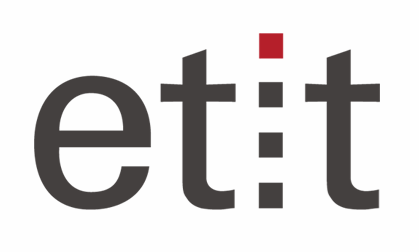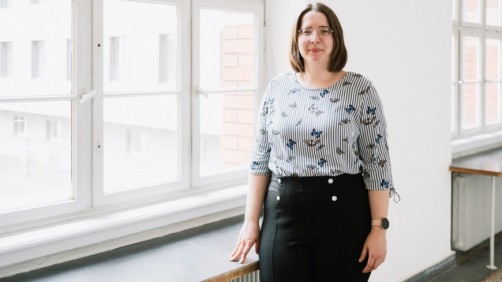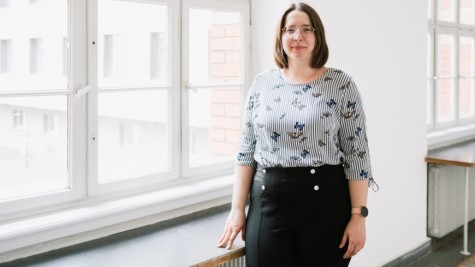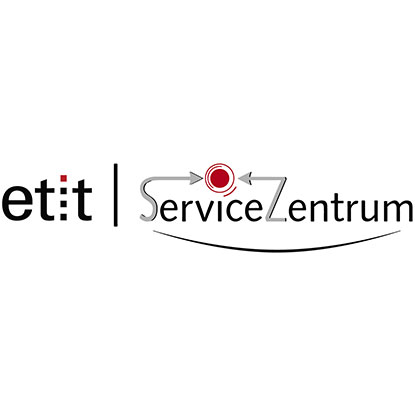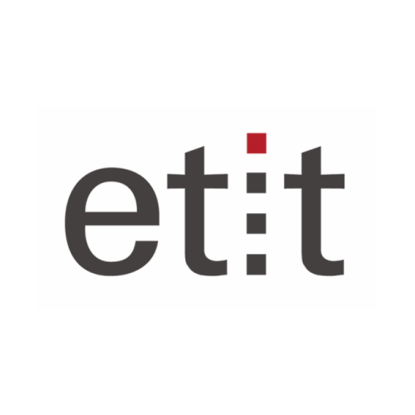‘Enriching the medicine of tomorrow’
Interview with the Deans of Studies for the RMU joint degree programme “Medizintechnik” – part two of a five-part series
2025/10/01
Together with Goethe University Frankfurt as a partner in the Rhine-Main Universities (RMU) alliance, TU Darmstadt has been offering the Medizintechnik programme since 2018. The two Deans of Studies, Anja Klein and Miriam Rüsseler, look back on the beginnings and venture a prediction for the future.

Dear Ms Klein, dear Ms Rüsseler, combining two disciplines that at first glance appear very different across two universities into one degree programme sounds like a bold project. What were your visions at the time?
Professor Anja Klein, Dean of Studies in the Department of Electrical Engineering and Information Technology (etit): Today, no area of life is conceivable without technology, whether in everyday life or in situations where people are dependent on assistance. Technology already accompanies the world today and will do so even more so in the world of tomorrow. We wanted to create a degree programme in which the foundations for innovations can be laid through disciplines that are not yet naturally linked – innovations that improve medical care for people or even save lives. Thanks to the tenacity and commitment of my two colleagues, Professor Jürgen Adamy and Professor Ulrich Konigorski, as initiators and key players in the implementation, it was possible to create a degree programme across two universities that captures the spirit of the times and makes it clear that together we are stronger.
Professor Miriam Rüsseler, Dean of Studies, Clinical Medicine Department: Medical technology has played an important and integral role in a wide variety of areas in our everyday clinical practice for 100 years (e.g. use of heart-lung machines since 1953, dialysis since 1924, sonography since 1942). Translating questions from everyday clinical practice into technical solutions requires a common language between medicine and technology and, in particular, an understanding of everyday clinical practice on both sides in order to develop products that are truly applicable. This is exactly what this degree programme enables and thus represents a significant enrichment for the medicine of tomorrow.
My sincere thanks go to my colleague and predecessor as Dean of Studies, Professor Dr. Dr. Robert Sader, who brought the vision of this degree programme to fruition.
When you compare your visions from almost ten years ago with today's successes, were the commitment and courage you showed back then worth it?
Klein: Absolutely! We see graduates who speak both languages – that of medicine and that of electrical engineering and information technology. This is what enables efficient and innovative collaboration between the disciplines. Interest in the programme has been high since its inception, and the students are extremely intrinsically motivated, which is reflected not least in their above-average final grades. Everyone involved, both students and teachers, is passionate about the subject because it combines technology and people.
Rüsseler: The tremendous commitment of the teaching staff and deaneries in designing and developing the programme, particularly in differentiating the individual modules, has paid off. This is evident from the high level of interest in the programme, both at bachelor's and master's level. In particular, the bachelor's and master's theses completed to date show that the vision is bearing fruit.
We also have highly motivated students and teaching staff at both universities who are working hard to further develop the programme.
Medizintechnik is an engineering degree programme, even though it focuses on people. The proportion of female students is around 50 per cent – unlike in other engineering subjects. What is the secret recipe?
Klein: The name of the degree programme itself indicates that technology is designed with and for people. In other subjects with a high proportion of female students, this is also an important factor for many when choosing their subject.
Of course, traditional engineering degree programmes also have this in mind – but in Medizintechnik, it becomes tangible from the very first year, e.g. through insights into clinical practice and a job profile that focuses on people. In this way, the new degree programme also makes an important contribution to gender parity in science. Getting more female students into engineering degree programmes and positions – mission accomplished!
Rüsseler: The programme combines medicine/health sciences with technology. It is precisely this combination that makes it attractive to female students, who come for the medicine and can combine their interest in computer science and electrical engineering. Unfortunately, purely technical programmes still rarely attract the direct interest of female students. But it is precisely this diversity that creates different perspectives and creative ideas for the medical technology of tomorrow.
What social developments will students who begin studying Medizintechnik in 2025 be able and required to find answers to?
Klein: Society is ageing and life expectancy is rising in Western countries. According to estimates, two million people in Germany will be living with dementia by 2050. Personalised medicine will also become increasingly important. We are still in the early stages here, but technology will open up possibilities that are unimaginable today for optimising individual diagnosis and treatment procedures.
Rüsseler: Today's challenges in medicine are manifold. On the one hand, there is the existing shortage of skilled workers. On the other hand, there is an increasingly ageing society with multiple chronic diseases. Creative solutions are needed here to support skilled workers in providing care.
Last but not least, the enormous scientific advances in diagnostics and therapy, particularly in various types of cancer, require solutions that can be implemented in broad, individual applications.
The questions were posed by the communications team of the Department of Electrical Engineering and Information Technology (etit) at TU Darmstadt.
Facts and figures
The RMU cooperative degree programme Medizintechnik at a glance
- 132 – degrees awarded since the programme startet in the winter semester of 2018/19
- 256 – Number of bachelor's degree applications (winter semester 2024/25) for 120 slots
- 144 – Number of master's degree applications (winter semester 2024/25)
- 50,9 percent – Proportion of women in the bachelor's degree programme (winter semester 2024/25)
- 58,8 percent – Proportion of women in the Master's programme (winter semester 2024/25)
- 42 – Students spending time abroad (winter semester 2024/25);most popular destinations: Great Britain, Ireland, Scandinavia
